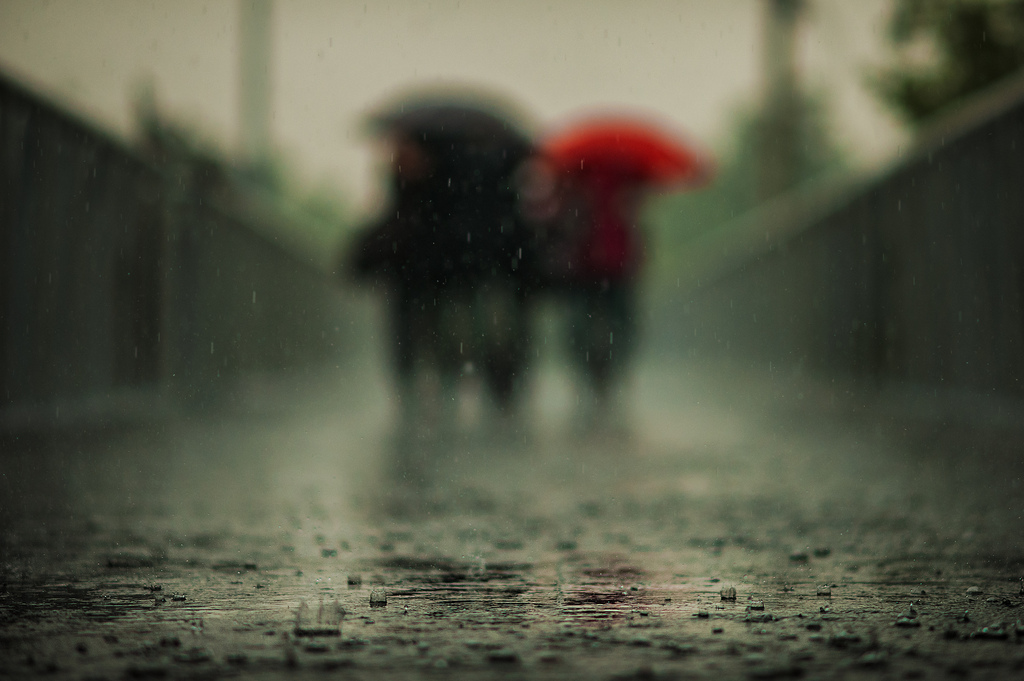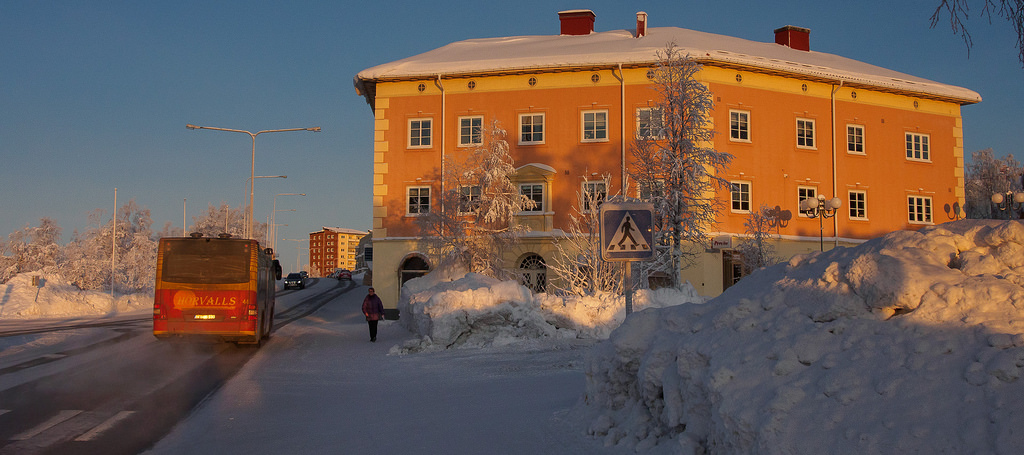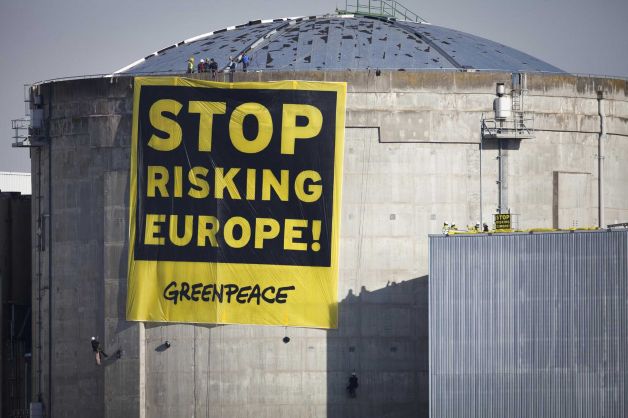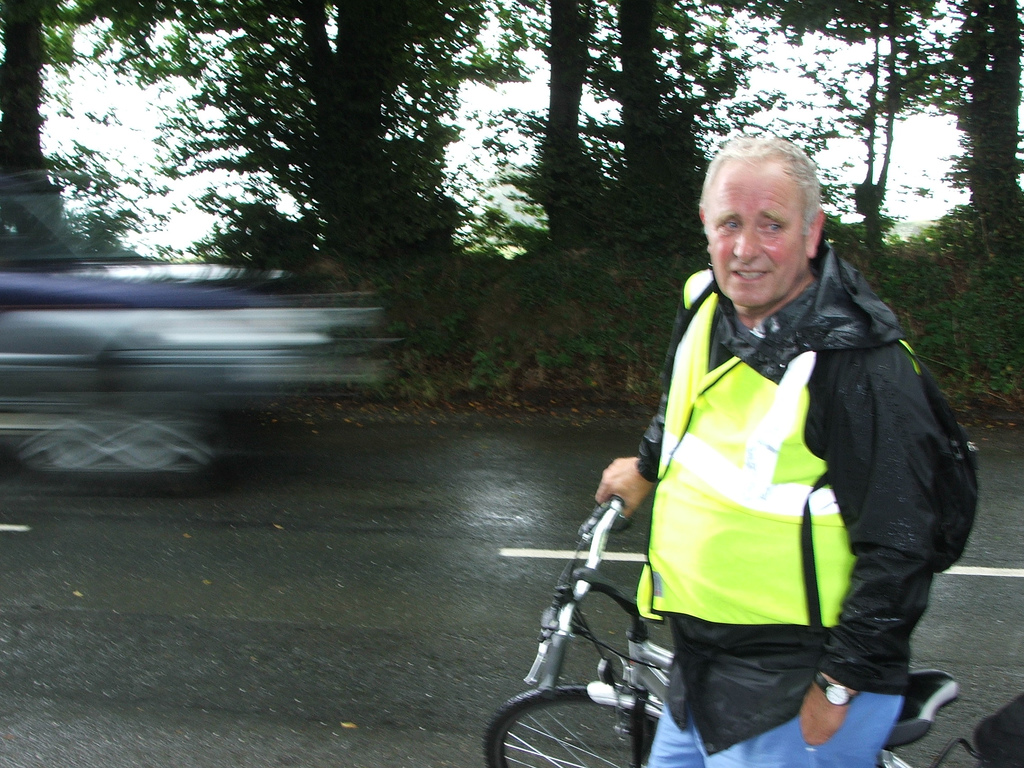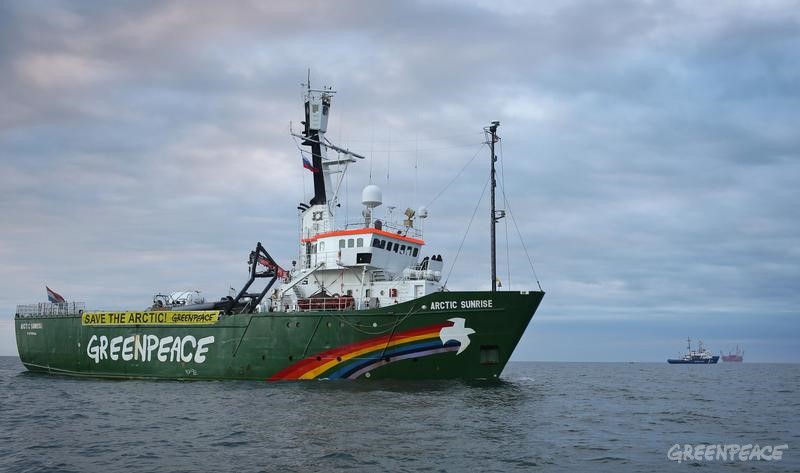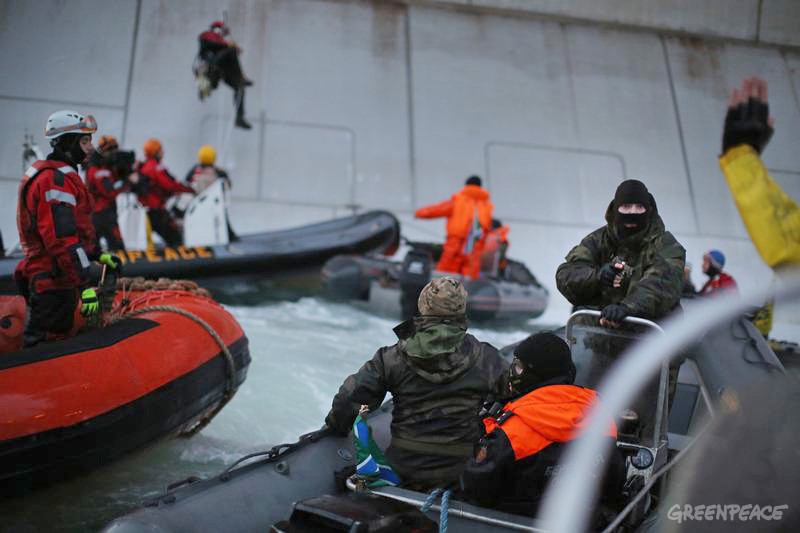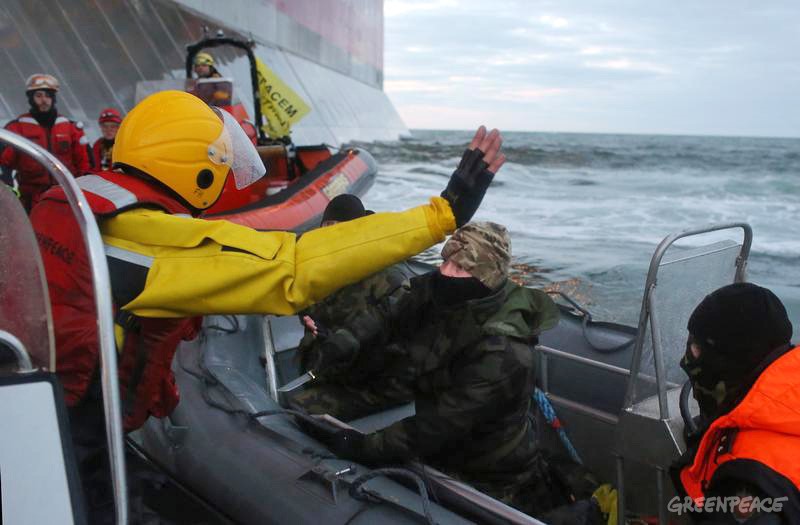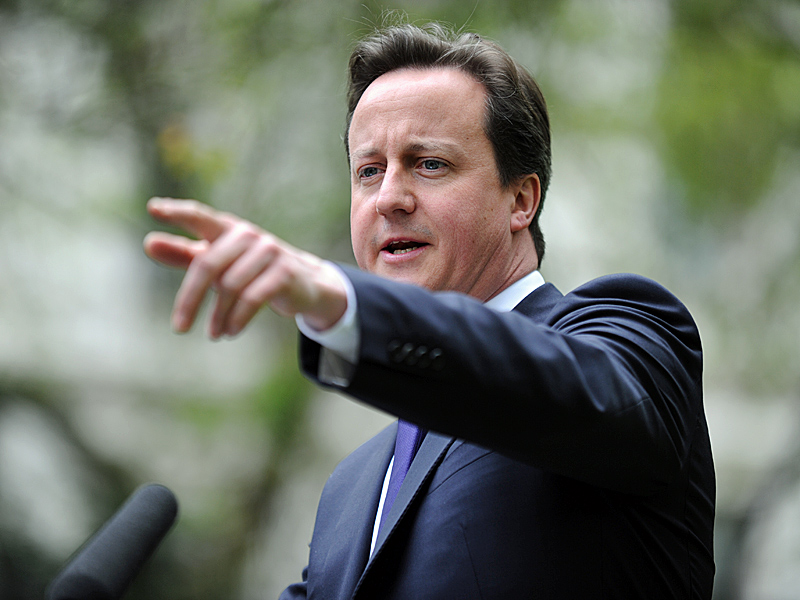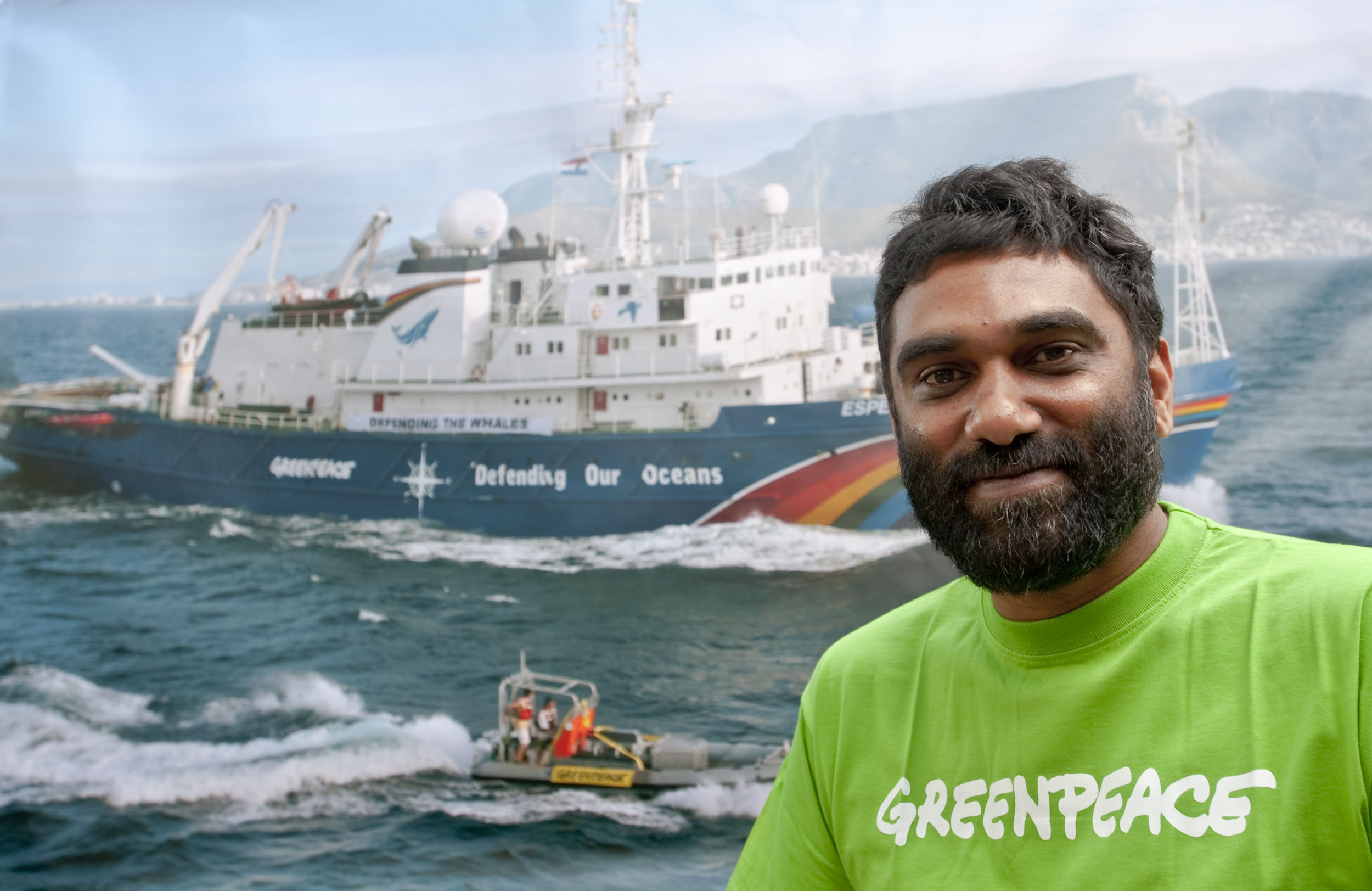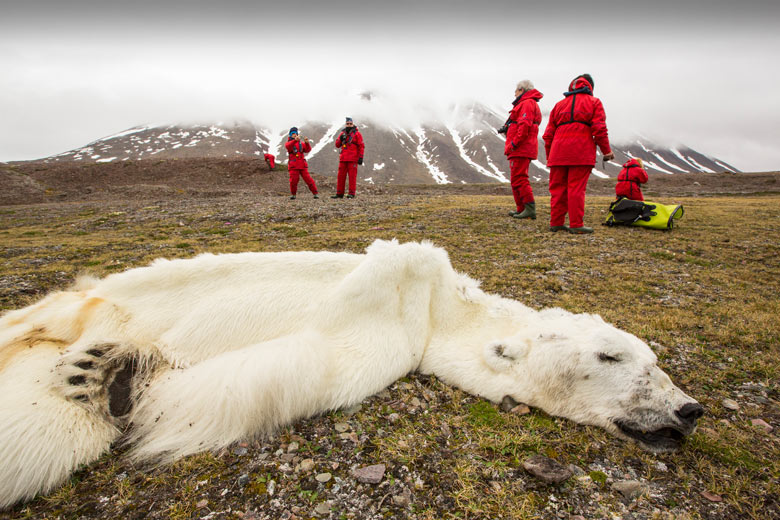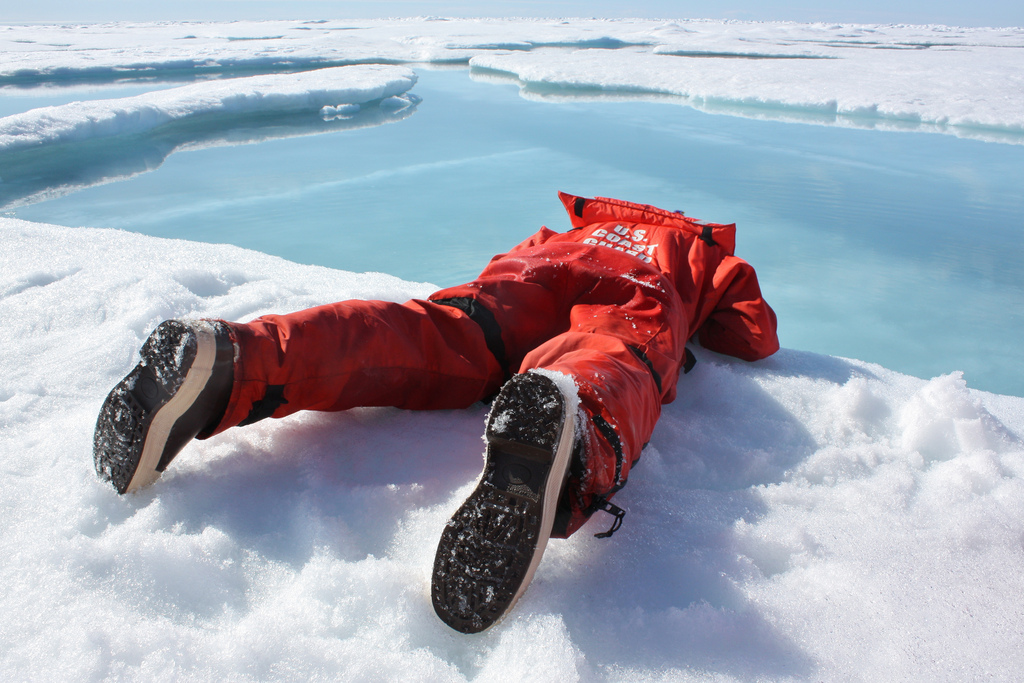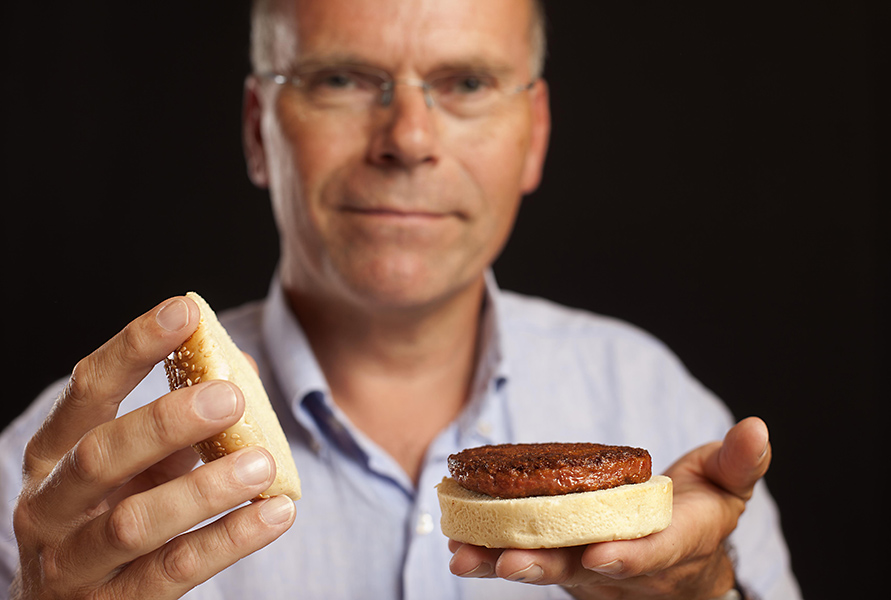-
Posts
209 -
Joined
-
Last visited
-
Days Won
9
Content Type
Profiles
Environment News
Forums
Blogs
Gallery
Events
Everything posted by Green Blog
-
Al Jazeera English writes about Exxon Valdez and how the massive oil spill disaster still continues to haunt the people and wildlife of Alaska more than two decades later. "When we heard on the radio that an oil tanker, the Exxon Valdez, had run aground, we just knew it was bad, that everything was going to change," said the 61-year-old commercial fisherman. For Linville himself, that meant tying up his fishing boat and joining efforts to stop the fouling of Alaska's rich southern coastal waters. The ruptured hull of the supertanker began spewing crude almost immediately after it grounded outside the port of Valdez - more than 40 million litres of sticky, toxic goo. "They hired everyone and anyone to help clean up," said Linville. "The fishing was closed so they had to do it. We all joined in." As the slick spread west and south along Alaska's coast, Linville and others were sent to beaches to rescue animals coated with oil. Later he helped lay floating barriers and tried to scrub oil from the shore with soap. Some crews sprayed boiling water on rocky beaches, while others used dispersants to thin the oil coating. Read it: Exxon Valdez spill effects linger 25 years on
- 2 replies
-
- Exxon
- Exxon Valdez
-
(and 3 more)
Tagged with:
-
CNN writes how the search for the missing Flight MH370, from Malaysia Airlines, is being hampered by the vast amounts of garbage in the ocean. "It isn't like looking for a needle in a haystack," Conservation International senior scientist M. Sanjayan said of the difficulty in finding the Boeing 777 aircraft. "It's like looking for a needle in a needle factory. It is one piece of debris among billions floating in the ocean." Read it: Plane search hampered by ocean garbage problem
-
The World Meteorological Organization (WMO) released their annual State of the Climate report this past Sunday, to coincide with the World Meteorological Day. The report confirms that recent extreme weather events, such as droughts, floods, heat waves and tropical cyclones around the world, are linked to human-caused climate change. "There is no standstill in global warming," said WMO Secretary-General, Mr. Michel Jarraud in a statement. "Many of the extreme events of 2013 were consistent with what we would expect as a result of human-induced climate change. We saw heavier precipitation, more intense heat, and more damage from storm surges and coastal flooding as a result of sea level rise - as Typhoon Haiyan so tragically demonstrated in the Philippines." The WMO report shows that 2001-2010 was the warmest decade on record, and that the last three decades had been warmer than the previous one. In 2013, Australia had its hottest year on record while Argentina had its second hottest. 2013 tied with 2007 as the sixth-warmest on record. The continuing long-term trend of warming and these heat records could not have been possible without "human-induced influence on climate", i.e. global warming, the report concludes: "Comparing climate model simulations with and without human factors shows that the record hot Australian summer of 2012/13 was about five times as likely as a result of human-induced influence on climate and that the record hot calendar year of 2013 would have been virtually impossible without human contributions of heat-trapping gases, illustrating that some extreme events are becoming much more likely due to climate change." The report also shows that during 2013 greenhouse gas concentrations in the atmosphere reached record highs, global oceans reached new record high sea levels, and Antarctic sea ice extent reached a record daily minimum. "2013 with its mixture of record warmth and extreme weather shows a now familiar mixture of natural variability and greenhouse gas induced climate change," said Prof Sir Brian Hoskins, director of the Grantham Institute for Climate Change at Imperial College London. "These annual statements document a striking long term trend, and one thing is clear: that our continuing greenhouse gas emissions are a crucial driving force in the changing climate." Other key climate events of 2013, according to the WMO report: Typhoon Haiyan (Yolanda), one of the strongest storms to ever make landfall, devastated parts of the central Philippines. Surface air temperatures over land in the Southern Hemisphere were very warm, with widespread heat waves; Australia saw record warmth for the year, and Argentina its second warmest year and New Zealand its third warmest. Frigid polar air plummeted into parts of Europe and the southeast United States. Angola, Botswana and Namibia were gripped by severe drought. Heavy monsoon rains led to severe floods on the India-Nepal border. Heavy rains and floods impacted northeast China and the eastern Russian Federation. Heavy rains and floods affected Sudan and Somalia. Major drought affected southern China. Northeastern Brazil experienced its worst drought in the past 50 years. The widest tornado ever observed struck El Reno, Oklahoma in the United States. Extreme precipitation led to severe floods in Europe’s Alpine region and in Austria, Czech Republic, Germany, Poland, and Switzerland. Israel, Jordan, and Syria were struck by unprecedented snowfall.
-
A new nationwide poll in Poland shows that 88 percent of its citizens want their country to shift to renewables, take serious action against climate change and for their political leaders to stop blocking important EU climate action. "The vast majority of Poles want their country to take strong action on climate change and shift to renewable energy. This is the result of a representative nationwide poll by TNS Polska in March 2014 commissioned by campaigning community Avaaz," writes Diana Maciąga over at 350.org. "This poll shows very clearly that Polish citizens want our country to take strong action on climate change and shift to renewable energy sources. Our government has to stop blocking EU climate action and we cannot allow private projects such as Elektrownia Północ, which put us on the worst possible path for our energy future." Read it: Poles want energy transition to renewables = no new coal!
-
Kiruna is a small town with less than 20 000 inhabitants located in the most northern parts of Sweden. It's a typical mining community, with iron ore extraction being the key industry of the area. In fact, Kiruna has been an important seat for iron ore extraction and mining industry in Sweden since the early 20th century. So it's not the typical city you would expect to introduce free public transportation for all its inhabitants. But the city of Kiruna did just that in 2011, and the results have been amazing. "The result is incredible," said Niklas Sirén, Vice Chairman of the municipal executive board in Kiruna. "We did not dare set a figure as a goal. There is a very strong car culture, it is sparsely populated here and we figured Kiruna residents are deeply rooted in their driving. We were pleasantly surprised. More people are choosing to leave their cars more often." Niklas Sirén and his local Left Party was behind the suggestion to introduce free public transportation in 2011 on a trial basis. Back then, in 2010, only 120 000 trips were made. But since free public transit was introduced, travel has tripled in Kiruna and the experiment has now become permanent. Last year more than 387 000 trips were made in Kiruna. "This has broken a downward spiral for public transport," Sirén said to ETC. "Previously, there would mostly be only empty buses. Now comes the expectation of more rides and lines. The next step is to expand public transport." But it's not completely free. To be able to use the service, Kiruna residents need to pay 100 SEK, around $14, for a buss card each year. The free public transport does not apply to tourists and other temporary visitors whom instead need to buy tickets to be able to travel. But the card is also available for asylum seekers, and students that lives outside the municipal. For Kiruna, the free public transportation costs around 3.3 million SEK per year.
-
- public transport
- free public transit
- (and 4 more)
-
A dozen of Greenpeace activists sneaked into France's oldest nuclear power plant earlier this morning in an effort to highlight security weaknesses at nuclear facilities in Europe. All in all, about 60 Greenpeace activists from 14 different countries participated in today's protest at the Fessenheim nuclear plant - the oldest in France. The protest started early at dawn this Tuesday when several activists sneaked inside the premises of the nuclear power plant to hang anti-nuclear banners from a building next to one of the plant's reactors. A couple of activists even managed to climb on top of the reactor number 1's roof where they unfurled banners with the message "Stop Risking Europe". The rest of the activists stayed outside the plant, blocking its entrance with barrels and demanding the shutdown of the plant. "The Fessenheim plant is a symbol," Greenpeace activist Cyrille Cormier said. "Its planned closure must be the beginning of a series of plant closures in Europe to limit the accidental and financial risks linked to ageing (plants) and to start the energy transition." The Fessenheim nuclear plant, which is France's oldest and considered vulnerable to seismic activity and flooding, is located in north-eastern Europe, only 1,5 km from Germany in the third most densely populated region in Metropolitan France and in the centre of the so-called European Backbone. The nuclear plant is situated on the banks of the Rhine, one of Europe's largest rivers that runs through three different countries. So if an accident were to happen at the nuclear plant, it wouldn't just be France who would be affected. France's President François Hollande has said that he wants to reduce France’s reliance on nuclear power from 75% to 50% by 2025. Hollande has earlier promised to shut Fessenheim down by 2016. But despite this, there are currently discussions in France about extending the lifetime of several nuclear plants beyond their 40 years. "We’re demanding Mr Hollande keep his promise by limiting maximum reactor lifetimes to 40 years by law and ensuring more nuclear plants are shut down," Greenpeace said in a statement. "With climate change upon us it should really go without saying that Europe needs a real energy transition based on renewable energy. This needs to happen fast." A spokesman from EDF, the plant's operator, said in a statement that further precautionary measures has been taken. "There has been no impact on the security of the plant, which continues to function normally," the EDF spokesman said. Following today's protest, Ecology Minister Philippe Martin said he would "ask operators to reinforce the physical protection of the most sensitive zones in their nuclear facilities."
-
- nuclear energy
- nuclear protest
-
(and 6 more)
Tagged with:
-
Results from a study done by a research group at the Skövde University in Sweden might surprise cyclists. Their research project, named Urbanist 2, have looked at how well reflexes helps motorists’ spot cyclists in the dark. Their conclusion is that it is dangerous to rely on the bright, and among cyclists, popular reflective vests. “What we have seen in our research is such that the reflective vest provides a false sense of security at night, when it in no way helps the motorist to interpret the rider's movement information,” said Paul Hemeren, PhD in Cognitive Science at the University of Skövde. Instead, their findings show, it’s more important where on your body those reflexes are located. The best placements are on the head, arms, feet, and other body parts that are moving when you’re cycling. “If you place a reflective stripe on the back of the helmet, which continues in a vertical line down the back, you create a line that breaks when the rider turns his or hers head,” Hemeren said. “This shows [for the motorist] that it’s a high probability that the cyclist will turn. And if reflexes are also placed on other body joints you will reach an even better result.” If the reflexes are placed like this, it reinforces a riders unconscious patterns of movement and in turn makes it easier for the motorist to make an accurate assessment of the cyclist’s intentions – in up to 97 percent of the cases. Without it, the study finds that the motorists could only make a correct assessment in little over 70 percent of the cases. Obviously one shouldn't draw too many conclusions from only one study, but apparently, those reflective safety vests used by many cyclists might not do much to protect the wearer – at least if the wearer is on a bike.
-

How to increase your blog's chances of getting featured
Green Blog posted a blog entry in The Community Blog
Our members regularly publish good and interesting blog posts here in our community. And we often feature some of the best posts. Featured blog posts gets highly visible on both the Green Blog frontpage and the Community Blogs page, as well as next to all our regular environment news. Simply put: if your blog post gets featured it will be seen by a lot of people. We tend to feature posts that are topical, interesting and thought-provoking. Here are some friendly tips on how you can make your post even better, and more likely to get featured: We cannot stress this enough. References are important! Add links to news sites, Wikipedia entries, blog posts, etc., that supports the claims you make in your blog post. Everyone likes photos! So add an Entry image on your next blog post. You can also upload and add individual images as well as photo albums to your blog post using our Green Blog Gallery. Label you post with a category and tags, tags, and more tags! Different categories for your posts are also useful. While you can use several tags that are relevant to your blog post's content, we recommend you to only use one category per post. Good luck and maybe we'll feature your blog post next time! :) -
Documents leaked by whistleblower Edward Snowden, and published by the Huffington Post and the Danish newspaper Information, shows that the NSA spied on the talks at the UN climate summit in Copenhagen in 2009. "The Obama administration clearly never wanted Copenhagen talks to work," says Bill McKibben following latest NSA revelations concerning climate talks. Read it: 'Insane, Disgusting' and 'Epic Treachery': NSA Spied on Climate Talks
-
Salon writes about the Sochi scandal no one’s talking about. Olympic construction is destroying Sochi. And the government is cracking down on the people who dare to speak out. "As athletes and fans from around the world descend upon Sochi for the 2014 Winter Olympics, they are (according to some) sitting atop a site of immeasurable loss and irreversible damage to what was once a unique and pristine ecosystem. They’re unlikely, however, to be aware of it, and authorities will be on their guard to prevent anyone with a megaphone or a picket sign from bringing it to their attention. Those would-be protesters are yet another group being silenced in Russia – where, along with everything else, it’s also a crime to defend the environment." Read it: How Russia is silencing its environmentalists
-
Ska Keller, from Germany, and José Bové, from France, have been selected to lead the European Green Party in their upcoming European campaign. After closing the polls yesterday, the election result was presented at a press conference earlier this morning. "I’m looking forward to an enthusiastic election campaign, for the whole of the European Union," Ska Keller said during today's press conference. "It will be our task as top candidates to bring a European dimension to the national Green campaigns." "In our campaign, we Greens will be clear about what our Green alternatives are for Europe: a fair and Green way out of the crisis, putting youth unemployment on the top of the agenda, protecting the rights of refugees and migrants, fair trade not free trade, more ambitious climate targets, and more democracy," Keller said. The European Green Party, which is a transnational political party consisting of 40 green parties from throughout the European Union, asked people whom shared their "values" to choose their party's two green leading candidates for the upcoming European Elections, which are held between 22 and 25 May later this year. This was the first ever Europe-wide online election for a parliamentary group in the European parliament. But the election had quite a low voter turnout with only 22,676 people participating. It's therefore doubtful that the result is representative for the members of the green parties in Europe.
-
The 'polar vortex' and severe cold weather don't mean climate change isn't happening, writes Yarrow Axford. "Climate change is a painstakingly well-documented long-term global trend, in which each recent decade has been warmer than the decade before. This is generally true for most parts of the globe, but more importantly is true when one considers the Earth as a whole. [...] Despite the overwhelming evidence that our planet is warming, there are two points of perpetual confusion that combine with our psychology to make winter weather a seasonal boon for climate skepticism. For one, a cold snap where we live should not be confused for a global event." Read it: No, Global Warming Isn't Suddenly a Myth Because It's Really Cold Out
-
- global warming
- climate change
-
(and 4 more)
Tagged with:
-

Climate change will make it too warm for Winter Olympics
Green Blog posted a topic in Climate Change
Athletes are getting ready for a warm, soggy Winter Games in >Sochi. But thanks to global warming, that could soon be the norm for the Winter Olympics. by mid-century, close to half of the previous host cities could likely be too warm for outdoor sports like Alpine skiing and snowboarding. From the 1920s to the 1950s, the average February daily high temperature in host cities was just 0.4 C, a figure that had risen to 7.8 C between 2000 and 2010. Read it: Climate Change Could Melt the Winter Olympics-
- climate change
- Olympics
-
(and 1 more)
Tagged with:
-
Russian courts sentence Evgeny Vitishko, an environmentalist and critic of the Sochi Olympics construction projects, to three years in prison less than a month before the Olympics. A court in the southern region of Krasnodar — where the Sochi Winter Olympics open next month — sentenced environmentalist Evgeny Vitishko to three years in a penal colony. A geologist and member of the Environmental Watch of the North Caucasus, Vitishko is an outspoken critic of construction for Sochi, a massive development project that comes not only with the heftiest Olympic price tag to date — a staggering $51 billion — but also, according to some critics, the unflattering label of most damaging to the environment. Read it: Russia cracks down on green activism ahead of Sochi Olympics
-
Peter Hart complains about a recent climate debate on CNN's Crossfire which he says misleads viewers and spreads climate denialism. Right from the beginning, the January 6 episode of CNN's Crossfire sounded like a bad idea. Here's the announcement that aired at the top of the show: "How far below zero does it have to get to cool off the global warming debate?" To make things clearer, the top of the show announcement continued: "This week's historic cold brings out the skeptics. Will it put the climate change debate in the deep freeze?" But while cold weather might "bring out" climate change deniers, it was CNN that decided to put one on Crossfire, creating a familiar–and false– "balance" between those who accept climate science and those who do not. Read it: It's Cold Outside, So CNN Debates Climate Change
-

Greenpeace dismisses Russian allegations of piracy
Green Blog posted a article in Business & Politics
Russia's Federal Security Service has announced that they've seized the Arctic Sunrise and its crew following a protest against oil drilling in Arctic waters. The Greenpeace ship has now been towed to port in Murmansk where an investigation will be conducted. A Russian official have said that the Greenpeace activists, totaling 27 or 30 depending on source, could face piracy charges. Greenpeace strongly rejects these allegations and describes them as a desperate attempt to justify the illegal boarding of their ship in international waters. "The suggestion that Greenpeace engaged in piracy this week smacks of real desperation," said Greenpeace International's General Counsel Jasper Teulings. "The activists climbed Gazprom's Arctic oil platform for a completely safe and peaceful protest against dangerous drilling, carrying only banners and rope. Piracy laws do not apply to safe and peaceful protests." "Over a day after our protest the Russian Coast guard boarded our ship outside of territorial waters, where there is right of free passage, with no legal justification whatsoever," Teulings added. "This looks like a retrospective attempt to create that justification and avoid embarrassment." Greenpeace organized protests outside Russian embassies on 20 locations around the world today following the boarding. They have also called on people to contact Russian embassies and demand the immediate release of the ship and its crew. So far about 400 000 letters have been sent. "We will contest these allegations strongly and we continue to demand the release of our activists and the ship," Teulings said.-
- Activism
- Greenpeace
-
(and 3 more)
Tagged with:
-
It's been more than 48 hours since armed Russian security officers boarded the Arctic Sunrise and arrested around 30 Greenpeace activists following a protest against oil drilling in Arctic waters. Details are still sketchy but the Greenpeace ship is apparently now being towed by the Russian coastguard to the nearest harbor with the ship's crew being held onboard at gunpoint. "They used violence against some of us, they were hitting people, kicking people down, pushing people," said Faiza Oulahsen in a phone call from the ship before communications were cut. Russian officials have accused Greenpeace of "aggressive and provocative" behavior during the oil drilling protest earlier this week. Liliya Moroz, a representative of the Federal Security Service (FSB) in the Murmansk region, has said to local media that the activists could now face terrorism or piracy charges. If charged with terrorism the activists could face a minimum of 10 years in prison. Greenpeace have been unable to make contact with their activists onboard the Arctic Sunrise and they have not yet received no official confirmation from Russian security services. "This is the clear detention of people against their will," said Vladimir Chuprov, head of the energy department at Greenpeace Russia. "Terrorism is a very serious crime." FSB has said that they've been co-ordinating actions with the Russian foreign ministry and energy giant Gazprom "to protect the safety of the crew on the platform and defend the interests of the Russian Federation in the Arctic region." But Greenpeace says these accusations are dishonest because the "unidentified object" was their safety pod, and it was brightly coloured and branded with the environmental organization's famous logo. Greenpeace have also said that the boarding was illegal because their ship was on international waters and outside the jurisdiction of Russian authorities. Jasper Teulings, a Greenpeace lawyer told Reuters that "the only reason the ship can be boarded inside the EEZ, (exclusive economic zone) is when there is suspected breach of fisheries regulation or suspected substantial discharge in violation of environmental regulation. Neither is the case. Other grounds could be piracy or slavery, so it's clear that none of these apply." Teulings also stressed that "the situation at the moment is actually unclear," and that we don't know yet whether the Greenpeace ship have been seized. "We would be surprised if it had been [seized], because that would have been illegal," Teulings said. "We do know that the ship is being held by the coastguard, and we are taking every step in our power at this moment, including international diplomacy, to ensure the swift release of the activists and we are in touch with their families."
-
30 Greenpeace activists, who had been part of a peaceful protest against energy giant Gazprom, are currently being held at gunpoint by Russian security officers who stormed the group's ship on international waters. Russian officials and representatives from Gazprom have accused the activists of participating in terrorism. Greenpeace dismisses these accusations and says the boarding by Russian security forces was illegal because their ship was circling Gazprom's Prirazlomnaya platform inside international waters and outside the jurisdiction of Russian authorities. The illegal boarding of the Greenpeace ship, named Arctic Sunrise, comes only a day after two other Greenpeace activists were arrested as they protested Arctic oil drilling on the Gazprom platform, Prirazlomnaya, in the Pechora Sea off the Russian coast. They were held overnight without charges or legal representation aboard a Russian Coast Guard vessel. It's been nearly 24 hours since the boarding of the Arctic Sunrise and there have been no official response from Russian authorities regarding the action. Greenpeace International has not received any formal confirmation of possible charges, and the activists have been denied access to legal or consular assistance. "The safety of our activists remains our top priority and we are working hard to establish what is facing them. They have done nothing to warrant this level of aggression and have been entirely peaceful throughout," said Arctic campaigner Ben Ayliffe. "The real threat to the Russian Arctic comes not from the crew of the Arctic Sunrise but from Gazprom, one of the most reckless oil companies in the world today." Greenpeace has organized protests at Russian embassies on 20 locations around the world today in support of the arrested Greenpeace activists. Greenpeace demands the immediate release of their activists and an end to Arctic drilling.
- 2 comments
-
- Greenpeace
- Russia
-
(and 2 more)
Tagged with:
-
In the article, Cameron writes that he wants to see fracking in all parts of Britain - and not just in the less populated areas in the north. "It's been suggested in recent weeks that we want fracking to be confined to certain parts of Britain. This is wrong," he said. "I want all parts of our nation to share in the benefits: north or south, Conservative or Labour. We are all in this together." Fracking is a controversial method of extracting gas. The word fracking comes from its technique, which involves fracturing rocks deep underground with water and chemicals to extract natural gas. The British Geological Survey has estimated that there could be around 1300 trillion cubic feet of gas in northern England alone. Cameron claims that only 10% of that is the equivalent of 51 years' worth of gas supply. Besides cheaper gas and energy bills for the British people, Cameron also promises that fracking will bring money to local neighborhoods and create new jobs in a struggling economy. He estimates that around 74 000 news jobs, in and around the gas sector, could be created. "If neighborhoods can see the benefits - and are reassured about its effects on the environment - then I don't see why fracking shouldn't receive real public support," Cameron said. "The Prime Minister's claim that UK shale gas will reduce energy prices doesn't stack," Greenpeace Energy Campaigner Leila Deen said in a response Cameron's pro-fracking comments. "Experts from Ofgem to Deutsche Bank to drilling company Cuadrilla itself agree UK shale will not bring down bills, because unlike the US, the UK is part of a huge European gas market," she said. "The government must come clean about where its getting its advice from, and the role shale gas lobbyists are playing in it." Fracking will bring potential dangers to the local environment, the climate and people's health. Fracking is a fossil fuel which production creates greenhouse gas emissions. It's no more different than coal and more conventional gas - in fact, its carbon footprint could even be worse than coal. Considering all the chemicals involved in the fracking process and the numerous reports of gas leaking into people's water supply, fracking could also become a real threat to people's health. In the US, at least eight states have reported surface, ground, and drinking water contamination due to fracking. In Pennsylvania alone, over 1,400 environmental violations have been attributed to deep gas wells utilizing fracking practices. Fracking will also bring pollution from truck traffic, chemical contamination around storage tanks, and habitat fragmentation and damage from drilling in environmentally sensitive. But Cameron claims that fracking is safe for both the public and the environment. "There is no reason why the process should cause contamination of water supplies or other environmental damage," Cameron said. At least if it's "properly regulated." And if "any shale gas well were to pose a risk of pollution, then we have all the powers we need to close it down," Cameron promises. "Our countryside is one of the most precious things we have in Britain and I am proud to represent a rural constituency. I would never sanction something that might ruin our landscapes and scenery." But, Cameron added, "the huge benefits of shale gas outweigh any very minor change to the landscape." If Cameron gets what he wants, which is thousands of shale gas pads scattered across Britain, he will just lock Britain into another form of fossil fuel addiction for another generation. And we cannot afford that. We need truly green and renewable energy sources.
-
Kumi Naidoo, who is the current International Executive Director of Greenpeace, answered questions on Reddit yesterday. There were a lot of internet trolls and plenty of downvotes going around. Here are some of the more interesting questions and answers. Who is Kumi Naidoo? Naidoo has been a political and environmental activist his whole life. Born in South Africa, Naidoo became involved in the country's liberation struggle at the age of 15. As a result of his anti-apartheid activities, he was expelled from high school. In 1986, Naidoo was arrested and charged for violating the state of emergency regulations. He went underground for one year before finally deciding to live in exile in England. After Nelson Mandela's release in 1990, Naidoo returned to South Africa where he, among many other things, worked on the legalisation of the African National Congress. From 1998 to 2008, Naidoo was the Secretary General and Chief Executive Officer of CIVICUS: World Alliance for Citizen Participation, which is dedicated to strengthening citizen action and civil society throughout the world. Naidoo has worked for Greenpeace for several years. He was involved in the development of Greenpeace's work in Africa and became a board member of Greenpeace Africa when it opened offices in Johannesburg and Kinshasa in 2008. But he is probably most known for his recent actions in the Arctic where he climbed an oil rig last August in the Russian Arctic to protest against Gazprom's plans to drill there. A year before that he was arrested in Greenland and spent 4 days in prison after entering an exclusion zone and scaling an oil rig, operated by Cairn Energy off the coast of Greenland. Naidoo became Greenpeace International Executive Director in 2009. What is Reddit? Reddit is a social networking and link-sharing site where registered people can submit content, post comments, and vote stories and links up or down to rank the posts after popularity. Reddit consists of a few large "subreddits" such as the politics, aww, and the atheism "subreddit". Users are also able create their own communities on the site and join other "subreddits" with content they prefer to see. One of the most popular "subreddits" is IAmA ("I am a") where users prompt others to AMA ("Ask me anything"). For example, both Barack Obama and Jill Stein, who was the Presidential nominee of the Green Party in the 2012 US election, have done AMAs on Reddit in the past. Naidoo's AMA Reddit user baghii asked: Hi Kumi, I saw your video about helping to end violence against women, how do women's rights connect with your work on environmental issues? A: Hi Baghii, Even the CIA and Pentagon now accept that the biggest to future peace and security will come from the impacts of climate change. We know that all conflicts affect women and children disproportionately. And it that sense the struggle for climate justice and the struggle for gender justice are intertwined. There are several other examples to. Working for sustainable agriculture in Africa is not possible without taking into account that the majority of African farmers are women. darkestsideofthemoon asked: While you advocate sustainability and homegrown foods, why not outright veganism or at the least vegetarianism? A: At Greenpeace we want the world to switch to ecological farming in order to get out of fossil-energy dependency in agriculture, GE and toxic pesticides while feeding everyone with a healthy diet. We need also to reduce the huge food waste (at least 30% of the food produced in the world never feed anyone) as well as reduce meat (over)consumption especially in continent or countries like north-America and Europe. Obviously vegetarians and vegans should be congratulated for their contribution and more people should also be encouraged to do so. Current meat-eaters should also be encouraged to reduce their meat consumption and shift to meat that is fed with organic products and that guaranty better animal treatment. However, we have also to acknowledge that some animals (raised on pasture) are also required for fertilization of the soil and help with some of the tasks especially as we need to get out of our oil-dependency. You can read our document on ecological livestock here. Bananamoneyad asked: What is the most effective method of advancing a cause? It seems that you've worked for a number of different causes, i.e. anti-apartheid, women's rights, and now environmental issues. Are protests actually effective, or other methods such as lobbying and communicating directly to the corporate or government level a better use of time? A: We always need a toolbox or menu of activism that has several elements. Effective activism is about aligning these different strategies. However, without peaceful civil disobedience I do not think we can push our governments and business leaders to change as fast as the science says we MUST CHANGE. surfstoked4 asked: What's the one thing you do consistently (personally) that you feel has a biggest impact on the environment? A: Invest and engage with young people because they genuinely "get" climate change and I think it is young people who will save this planet and sadly it is the adult generation that is living with no sense of intergenerational solidarity. pierluc asked: When I talk to Greenpeace members or employees (I am an ex-one), they often talk about Greenpeace's victories (obviously). So here's my question: what do you consider to be Greenpeace's biggest failure? A: Greenpeaces' biggest failure is that it's still necessary :-) No question, Greenpeace as an organization with human beings serving it has made tactical and other errors of judgment over time. However, history has shown that Greenpeace has been at least 20 years ahead of time in terms of raising the alarm on pressing environmental, social and security issues. Different people will answer your question differently. For me the biggest error we made in the early days was not always working in a harmonious partnership with Indigenous peoples and I am pleased that we are building bridges and are working with indigenous peoples who have been the best stewards of the environment historically. logicop asked: Do you believe reducing human population growth is critical to curbing climate change? A: Our planet is reaching various boundaries which cannot be further extended. Reducing population growth will help. But equalizing consumption patterns is equally important. On average it takes about 50 Africans to equal the consumption of only one person in the developed world. Reducing population growth is best served by pushing for gender equality and women's empowerment. [Editors note: Naidoo's answer has been changed because he had it backwards. His original comment can be found here.] BENWILEY4000 asked: What happened in your life that made you want to climb oil rigs and not just sit around like a normal person? p.s. proud member of the greenpeace usa student network here! A: I read a Mahatma Gandhi quote as a teenager that said: We shall pass this way but once, any good therefore that we can do, or any kindness we can show, let us do it now. Let us not neglect it or defer it since we might never walk this way again. I have also lost friends and family in the struggle for justice in my own country and elsewhere and their memory inspires me to keep on struggling for environmental and social justice. I never really wanted to climb an oil rig in the arctic -- really not a natural place for a boy from Durban. There are many trite answers all of which are in there way true: for example 'for evil to triumph all it takes is for good men and women to do nothing". i paraphrase of course. The insanity of arctic oil drilling cannot go unchallenged. The thought that we would misinterpret the melting of the arctic ice as an invitation to drill and spill rather than a warning to stop burning fossil fuels is a defining moment for our civilization. We need to heed that warning, we need to take action, and we need to say to the oil industry 'you go no further'. I grew up under apartheid, inaction was not an option. While times where hard, lives were lost, the cause was just and inspirational. Those memories and the great many friends and inspirations drive me on. It's great to hear from a fellow activist and member of our great US student network. It's important to remember that an activist's life is not always about sacrifice and hardship, it's about celebrating life, about collaboration and great friendships that last a life time. And I genuinely believe that activism can be fun and even sexy :-) Splenda asked: I haven't seen Greenpeace saying much about global warming's "new math "--the idea that we can only burn carbon at present rates for less than ten years, and that we must write off 80 percent of fossil fuel reserves completely. Why not? A: Global warming's "new math" makes clear that we simply cannot allow much of the fossil fuel reserves to burn. A report we published this year "The Point of No Return" identified the 14 biggest fossil fuel projects in the world that must be stopped to avoid catastrophic climate change. And that's why we're working, alongside many allies, to stop fossil fuel extraction and transport projects like Arctic drilling, tar sands development and the Keystone XL pipeline, and massive coal mining and export proposals in the United States and Australia. dsfgorg asked: Are you scared at some point that greenpeace will be too big for its own good? With that I mean the massive machinery that needs to operate it with desk-people rather then activists? A: Great question and one we constantly ask ourselves. As an organization it is always possible to lose sight of your purpose and get caught up in your own survival, to get caught up in the systems needed keep the organization healthy. Fortunately, we have a great many passionate and involved activists, volunteers and supporters who help us keep it real and maintain the balance. Our staff certainly don't just sit behind their desks, most of them can't wait to get out and take action, after they have completed the meticulous research and arrangements to make sure nonviolent direct action happens at the right time, in the right place for the maximum change. Take a look at our web sites you will see that every day, together with our supporters, we are out in the world taking action for change. sehric asked: With the increased attention being paid to geoengineering techs (specifically research programs into Solar Radiation Management) at universities and gov agencies in the US, Canada, Europe and China, and the funding coming from folks like Gates Foundation, Exxonmobil, etc, and even inclusion in the new IPCC AR5 draft, isnt it time that civil society engage the public on this? A: Climate change is a geoengineering experiment with very frightening consequences. We need to work with nature not against it. We should harness its energy rather than seek to control it. Geoengineering is an extremely dangerous distraction from what we actually need to do to stop runaway climate change. What are the chances that governments will suddenly be strong and brave enough to act on behalf of people and the planet just because some miracle technology emerges? The reality is, we already have the technology to solve the problem"”renewable energy like wind and solar, and systems that put people and the environment first. ggsmith asked: I've seen videos of you guys dancing and partying on your yacht and wearing stupid costumes, accosting people on the street. Isn't that immature? Do you think that stuff is effective? A: The video that was done on the Rainbow Warrior to gangnam style was in my judgment a good attempt to take our message of Ocean protection to people who are not thinking about activism or environment but appealing to their own interests. Gangnam style took the world by storm and we were using the video to reach out to the supporters of that. I have learnt that good activism is not about trying to be pious and too serious but connecting to people's consciousness rather than projecting our consciousness on the people we are trying to mobilize. agoldwynn asked: How are you thoughts about Greenpeace being considered as the New World Order Propaganda? A: Greenpeace was influenced by the quaker movement in since its early days which calls for BEARING WITNESS against injustice. We base all our interventions on objective science and research. Do we occasionally get things wrong? Of course we make mistakes. But we do not engage in conscious misleading of people like some of our governments and businesses often do. mrdarren asked: Given that we've seen recent violence directed towards the LGBT (Lesbian, Gay, Bisexual & Transgender) community in Russia - apparently condoned by the authorities who have pushed through anti-LGBT legislation - and that this appears to be part of a wider move by the Russian authorities to close down democratic space - a move which has also impinged on the rights of NGOs to act within Russia's borders to protect Russia's wider interests - do you, Kumi, who has been active in Russia against the incursions on the Polar region, see linkages between the environmental and social justice movements, especially around the issue of sexual self-expression? A: The links between social justice and environmental justice is fundamental and at Greenpeace we have been arguing that there must be a connection between human rights, environmental sustainability and poverty. To try and restrict rights of the LGBT community is fundamentally wrong and I have been personally inspired by the resistance we have seen to these moves and the inspiring solidarity offered by people around the world to those who have been victims of such homophobic interventions, which I consider conscious distractions from the real issues facing Russia and the world. IrishPidge asked: Greenpeace and most of the broader environmental movement has long been opposed to nuclear fission, for reasons of safety, proliferation, grid integration etc. Any thoughts on what GP's attitude is likely to be to potential future tech like nuclear fusion? Does any sort of nuclear reaction necessitate a negative response, or do you think changing tech leads to changing attitudes? A: Even those who truly believe in nuclear fusion, admit that it will not be available for large scale energy production in the next 50 years or so. Irrespective of the potential dangers that are associated with the technology (there is no knowledge yet on e.g. the amounts of nuclear waste), we do not have the time to wait and see whether this will work or not. We need to shift our energy system to a clean and sustainable one in order to reduce greenhouse gas emissions, and we need to do it now. We have the solutions to our energy needs now, we have renewable energy sources that will not only meet our needs, and they will fuel economic development and can be deployed in developing countries to help lift whole populations out of poverty. Fusion can't do that. It can't do it now. Why would we wait for yet another nuclear promise when we can take a renewable energy guarantee. The full AMA with all the questions and answers can be found here on Reddit.
-
Is the polar bear, pictured above, one of the first documented cases of a polar bear dying because of the devastating effects of man-made climate change? Dr Ian Stirling, renowned polar bear expert, thinks so. A new climate report released yesterday shows that the Arctic lost record amounts of sea ice last year. And this is forcing animals to travel further away from their natural territories in search of food. Especially hard-hit are polar bears who feed almost exclusively on seals which they can only hunt on sea ice. "From his lying position in death the bear appears to simply have starved and died where he dropped," Stirling said. "He had no external suggestion of any remaining fat, having been reduced to little more than skin and bone." The polar bear had in previous years been found and examined in the southern part of Svalbard by scientists from the Norwegian Polar Institute. Back then he appeared healthy. But in July, the same polar bear had managed to travel 250 km to the northern parts of Svalbard - an unusual far journey away from its normal hunting grounds. Stirling believes that the lack of ice forced this polar bear to travel this far away in an unsuccessful attempt to search for food. "The sea ice break up around Svalbard in 2013 was both fast and very early," Prond Robertson, at the Norwegian Meteorological Institute said. And previous years had been just as bad. "Warm water entered the western fjords in 2005-06 and since then has not shifted," Robertson said.
-
"The findings are striking," Kathryn Sullivan, NOAA's acting administrator, said on a conference call to the Guardian. "Our planet as a whole is becoming a warmer place." The findings were published in the 32nd edition of the American Meteorological Society's State of the Climate report, which was compiled with contributions from the National Oceanic and Atmospheric Administration (NOAA) and from more than 380 scientists from 52 countries. According to the new report, 2012 saw record levels of greenhouse gas emissions with a global average of carbon dioxide, methane and other warming gasses reaching 392.7 parts per million. 2012 was also among the 10 warmest years on record - ranking eighth or ninth depending on dataset. As a result, and as the report shows, the Arctic has lost record amounts of sea ice, making life hard for animals such as polar bears and raising the Earth's average sea levels. The map shows ice concentration on September 16, along with the extent of the previous record low (yellow line) and the mid-September median extent (black line). The most dramatic changes in the climate can be found in the regions of Arctic and Greenland. In 2012, the Arctic warmed at about twice the rate of lower latitudes while both the snow and sea-ice cover had fallen to its lowest levels ever since the beginning of satellite records. At one point in 2012, Arctic sea ice had receded to 1.32 million square miles - about 18% lower than the previous record low of 1.61 million square miles back in 2007, and a shocking 54% lower than the levels in 1980. If the current rate continues, the NOAA has projected that the Arctic ocean could become ice-free by 2050. "The record or near-records being reported from year to year in the Arctic are no longer anomalies or exceptions," said Jackie Richter-Menge, a civil engineer with the US army corps of engineers. "Really they have become the rule for us, or the norm that we see in the Arctic and that we expect to see for the forseeable future." The graph shows monthly global sea level from 1993 through early 2013 compared to 1993-2012 average, based on AVISO data. Global sea levels are rising as a result of the dramatic melting of sea ice, the report says. "Over the past seven years of so, it appears that the ice melt is contributing more than twice as much to the global sea level rise compared with warming waters," said Jessica Blunden, a climatologist at NOAA's national climactic data centre. During 2012, global average sea levels rose to record highs of 1.4 inches, about 35.56 mm, above the 1993-2010 average.
-
- NOAA
- global warming
-
(and 3 more)
Tagged with:
-
The world's first fully lab-grown hamburger was served at a press conference in London earlier this afternoon. The hamburger, which has grown from tiny bits of beef muscle tissue in a laboratory, is hoped to be able to increase food security, create better livestock conditions, decrease greenhouse gas emissions from the meat industry and reduce the environmental impact of livestock farming. The human population is soon expected to reach nine billion people and, despite the environmental impact, we are eating more and more meat. By 2050 the meat production is expected to increase with 50%. But the current meat production, despite its already inhumane and industrial-like methods, will be unable to meet future demands. The meat industry is already responsible for about one fifth of all greenhouse gas emissions, which is more than the world's transport sector pollutes. Livestock farming also use a lot of land, about 70% of the world's total agriculture land is already dedicated to livestock production - that's around 25% of the planet's total land area. Mark Post, who is the scientist behind the world's first lab-grown hamburger, hopes that his "cultured meat" will someday become one of the major solutions to the environmental and food crisis. "Cows are very inefficient, they require 100g of vegetable protein to produce only 15g of edible animal protein," Post told the Guardian. "So we need to feed the cows a lot so that we can feed ourselves. We lose a lot of food that way. [With cultured meat] we can make it more efficient because we have all the variables under control. We don't need to kill the cow and it doesn't [produce] any methane." This all sounds very promising. But Post's work is still in its early stages and there are still a lot of hurdles to overcome. The hamburger which was served today was a fairly simple creation – while being full of protein it lacked blood and fat which regular beef contains. But Post and his team also need to figure out how to scale up the process so that large-scale production can take place. They also need to figure out how the costs involved in the production can be reduced. Although the first taster of the lab-grown hamburger described it as having "quite some flavor", the total cost of the project, which resulted in today's hamburger, has been £250,000. Post hopes that commercial production of cultured meat could begin within 10 to 20 years. "Twenty years from now if you have a choice in the supermarket between two products that are identical and they taste and feel the same and have the same price - and one is made in an environmentally friendly way with much less resources and provides food security for the population and doesn't have any animal welfare connotations to it - the choice will be relatively easy," Post said. "People will start to prefer this type of product and then it will gradually transform meat production." Green Blog wrote about lab-grown and in vitro meat for the first time in 2008. Back then in vitro meat was a fairly new area and there was still a lot of research required and several obstacles that needed to be solved. Post hopes that today's event will show the skeptics that in vitro meat is possible and that it could actually help make the meat industry more ethical and environmentally friendly. Now the question is, would you eat it?
- 1 comment
-
- meat-industry
- meat
-
(and 2 more)
Tagged with:
-
Today, six brave activists from Greenpeace climbed to the top of the tallest building in Western Europe, the Shard in London, UK. The daring stunt was made in an effort to protest Shell's plans to drill for oil in the Arctic. The six climbers were Ali Garrigan from the UK, Sabine Huyghe from Holland, Sandra Lamborn from Sweden, Lisbeth Deddens from Belgium, Victoria Henry from Canada and Wiola Smul from Poland. You can read the full story here. Meet the climbers, from the left: Sabine, Sandra, Victo, Ali, Wiola & Liesbeth. The six activists started their journey up the 72-story building by climbing on to the roof of the neighboring London Bridge station early in the morning. Greenpeace says the Shard was chosen because it’s located in the middle of Shell’s three corporate headquarters. This photo shows how everyone involved in the action trained the day before the daring stunt. They arrived to the Shard in a van and climbed up to the London Bridge station using a ladder through a hatch on the roof of the van. Sabine Huyghe and Victoria Henry can be seen here climbing up the side of the Shard. “We'll try to hang a huge art installation 310m up. We may not succeed, but we’re going to do everything we can to pull it off,” Henry said. “Millions of people have called on Shell to get out of the Arctic but they're still trying to drill there anyway. If we reach the top we’ll be able to see all three of Shell’s London offices below us, meaning they'll be able to see us. Maybe then they'll stop ignoring the movement ranged against them.” Ali Garrigan has been climbing since age 18 & hopes the action can bring attention to the dangers facing the Arctic. People could follow and watch the six climbers while they climbed to the top of the Shard, situated 310 meters above ground. The live-feed was managed from the Greenpeace UK headquarter. The climbers used Iphones to stream live from their journey to the top of the Shard where they planned to unveil “a huge work of art that captures the beauty of the Arctic.” Lisbeth Deddens began climbing in high school. She has now climbed ice, rock, alpine, and the Shard. The media seemed to love the stunt and the Save the Arctic campaign got some much needed attention. Wiola Smul hopes that today’s action helps to change the way companies exploit vulnerable regions like the Arctic. Sabine Huyghe was inspired to train as a climber after helping other Greenpeace activists get ready in Belgium. Sandra Lamborn who has just finished an MA in environmental science was the lead climber during the action. “We do this to draw attention to the untenable situation in the Arctic, where the ice has melted by more than 80% since the 1950s. As the ice disappears, opportunities for development in the area previously been virtually inaccessible to humans,” Lamborn said. “This is a threat not only for the Arctic ecosystem and the animals that lives there, but actually for the planet and thus the future of humanity. The oil industry, with giant Shell in the lead, wants to drill for oil in the Arctic icy water, a place where the conditions are extremely unpredictable. Any oil spill would be devastating to the sensitive Arctic ecosystem and almost impossible to clean up. Extraction and consumption of Arctic oil leads to climate change, which in turn disrupts the planet's delicate balance ending in disasters, the extent of which we have only seen the beginning of.” The climbers reached the top of the Shard late on Thursday evening. All safe and sound, but exhausted from their free climb up the tallest building in Western Europe. All six climbers will be spending the night in police custody.
- 1 comment
-
- Europe
- SaveTheArctic
-
(and 6 more)
Tagged with:

